Why is Rubber a Good Insulator? Key Benefits and Uses
Rubber is widely used in many industries due to its high ability to act as an insulator. From electrical wires to machinery to consumer goods, it has an important function of insulation that helps safeguard people and tools. In this article, we will discuss about the reasons why rubber is a good insulator, the characteristics of rubber, its uses and advantages.
- Why is Rubber a Good Insulator? Understanding Its Key Benefits and Uses
- What is Rubber?
- Definition of Rubber
- Properties of Rubber
- What is an Insulator?
- Understanding Insulation Materials
- Types of Insulating Materials
- Why is Rubber Considered a Good Insulator?
- Rubber's Electrical Insulating Properties
- Rubber's High Resistance to Electrical Flow
- Applications of Rubber as an Insulator
- Rubber in Electrical Wiring and Cables
- Rubber Seals and Gaskets in Electrical Equipment
- Rubber's Role in High Voltage Applications
- Benefits of Using Rubber as an Insulating Material
- Superior Protection Against Electrical Shocks
- Resistance to Weather and Chemicals
- Cost-Effectiveness and Availability
- Conclusion
- Future Trends and Innovations in Rubber Insulation
Why is Rubber a Good Insulator? Understanding Its Key Benefits and Uses
What is Rubber?
Before diving into rubber's insulating properties, it's essential to understand what rubber is and how it is used across various applications.
Definition of Rubber
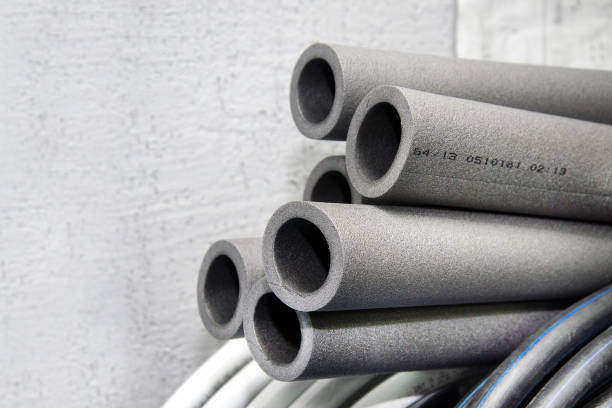
Rubber is a flexible material that is natural occurring from the latex source from the rubber tree or an artificial product like neoprene, silicone and EPDM. Natural rubber is derived from the trees that are tapped to produce latex which is then vulcanized to get hard rubber. While the natural rubber is produced from the latex of the rubber trees, the synthetic rubbers are produced through polymerization processes of petrochemical products.
The different types of rubber used are different and are characterized by different properties and are used in different products. Natural rubber enjoys excellent elasticity, which makes it ideal for tyres, seals and gaskets among other things. The two most commonly used synthetic rubber are neoprene and silicone because they are resistant to high and low temperatures as well as weather conditions and are used in automotive industry, aerospace industry and electronics industry.
For a deeper dive into natural vs synthetic rubber, click for all the insights.
Properties of Rubber
Rubber is well known for its special characteristics which makes it to be used as an insulating material. The most important properties of rubber are elasticity, flexibility and durability. Elasticity enables rubber to expand and contract and thus it is very useful in the absorption of shock and vibration. The ability to stretch makes rubber to bend and twist to the required sizes and shapes in order to fit tight corners or even cover round objects like cables.
In addition, rubber is very much long-lasting and does not wear out easily especially when exposed to unfavourable environmental conditions. It is resistant to wear and tear, chemical attack, and can be used under UV light and ozone. These attributes not only make rubber a good material for sealing and cushioning but also the best pipe insulation in electrical and industrial uses.
What is an Insulator?
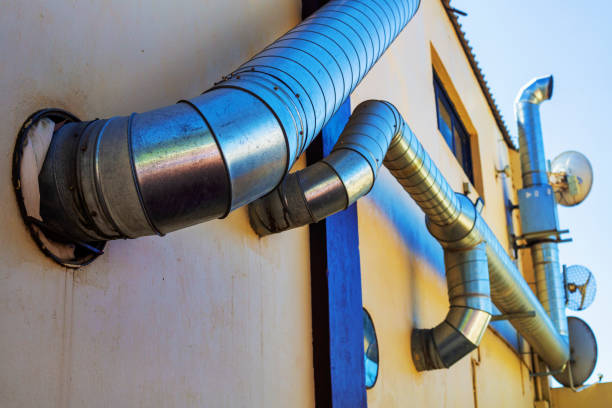
An insulator can be described as a material that does not readily allow the flow of electric current or heat which makes them useful in different areas such as wiring, heat protection among others. As a result, it is easy to identify why rubber is a good insulator by first understanding what defines a good insulator.
Understanding Insulation Materials
It is used in the protection of people and delicate equipment from the damaging effects of electric currents or heat. In electrical systems for example, insulation protects the system from accidental touching of live wires and reduces the chances of short circuiting, fires and electrical shocks. In thermal uses, insulators are applied to minimize heat loss thus improving energy utilization in the building structures, devices and other processes.
The best insulating material should be a material that does not allow the flow of current, has low thermal conductivity and should be able to perform its function irrespective of the prevailing climate. Depending on the characteristics of the material, it is possible to classify the insulation materials according to their electrical, thermal and mechanical characteristics.
Types of Insulating Materials
Insulation is provided by several materials and these materials are used in different applications. These insulating materials include rubber, glass, plastic and ceramics, and they are widely used in the market. Rubber is used often for electrical insulation because of its high electrical resistance and its flexibility. Glass for instance being a very poor conductor of electricity is used in powerline insulators. Plastic is used in applications where weight is a concern, and Ceramic is used where strength and heat resistance are needed such as high voltage.
Rubber remains an exception because of its elasticity, strength and electrical insulation, which makes it a material of choice in electrical and industries.
Why is Rubber Considered a Good Insulator?
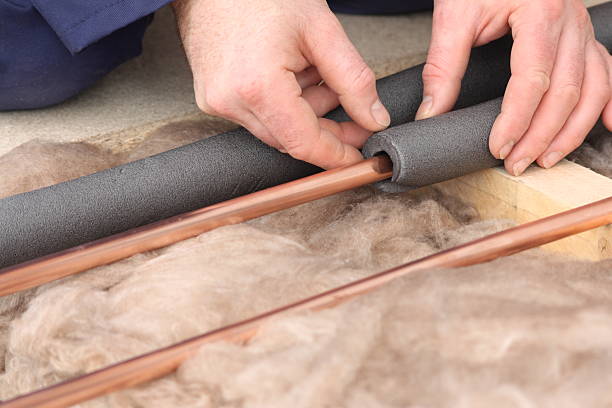
As an insulator, rubber is essential to many uses including especially in electrical applications. Now let us look at the scientific aspect of why rubber is a good insulator.
Rubber's Electrical Insulating Properties
Rubber is known to be an electrical insulator because its molecular structure does not allow easy passage of electrons. Unlike the metals which we have free electrons to allow the flow of electrical current, rubber does not have this molecular structure to allow free flow of electrical current hence it is an insulator. This property makes rubber to be very useful in shielding both humans and electrical equipment from risks such as electric shock and short circuit.
Rubber also does not allow electrical current to pass through it, and this characteristic is complemented by its resistance to depredation by environmental factors such as moisture and UV light, which would otherwise compromise the integrity of the insulation material. This makes rubber as a non flammable insulation suitable to be used in outside and irons projects where more exposure to the natural conditions is likely to happen.
Rubber's High Resistance to Electrical Flow
Rubber is a bad conductor of electricity and this is because there are no metals in the rubber compound. Rubber when used as an insulator around electrical wiring it provides a cover that does not allow electricity to flow through and cause harm. This high resistance is desirable in order to minimize power loss, short circuiting and electrical fires.
In addition, rubber does not permit easy flow of electricity through it at high as well as at low temperatures. This makes it appropriate for use in a wide range of conditions, including cold climates, hot and humid conditions and so on. It means that electrical systems remain fit for their use and safe from influence of some conditions.
Applications of Rubber as an Insulator
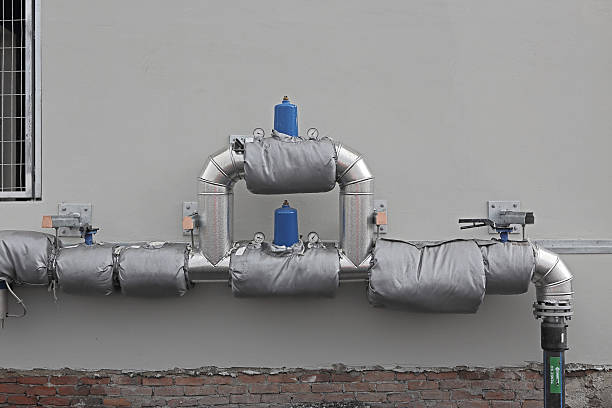
Due to its flexibility rubber is widely used in numerous electrical and industrial uses. Its ability to insulate is harnessed in many areas, right from home appliances to industrial power stations.
Rubber in Electrical Wiring and Cables
Rubber is widely applied to electrical wiring and cables to protect the users from electrical dangers such as short circuits and electric fires. Rubber is flexible and can be formed around the cables in such a way that they are covered to the core. Furthermore, it is an excellent insulator for outdoor and underground electrical wiring since rubber does not conduct water or chemicals.
Not only wires but rubber is also employed to insulate cables in high voltage application circuits like power transmission lines and industrial equipment. Their durability and resistance to wear and tear makes sure that the insulation is retained for a long time and thus offers protection to electrical systems and users.
Rubber Seals and Gaskets in Electrical Equipment
Apart from wiring and cables, rubber has immense importance to protect electrical equipment. They are normally applied in electrical enclosures, transformers, and circuit breakers to avoid penetration of moisture, dirt and other contaminants. These seals are crucial for the preservation of the electrical systems and their reliable and safe operation of the equipment.
Rubber’s capability to make tight contact also minimizes the probabilities of electric leaks, short circuits, and damage from exposure. This flexibility makes it easy for it to adapt to any shape of a surface in order to give a proper seal and further protection.
Protect your electrical systems even more efficiently with properly cut foam rubber. Get the details on Best Way to Cut Foam Rubber: Expert Tips for Clean and Precise Cuts now!
Rubber's Role in High Voltage Applications
Rubber is not just a good insulator because of its electrical properties; it also offers a range of benefits that make it ideal for long-term use in various industries.
Benefits of Using Rubber as an Insulating Material
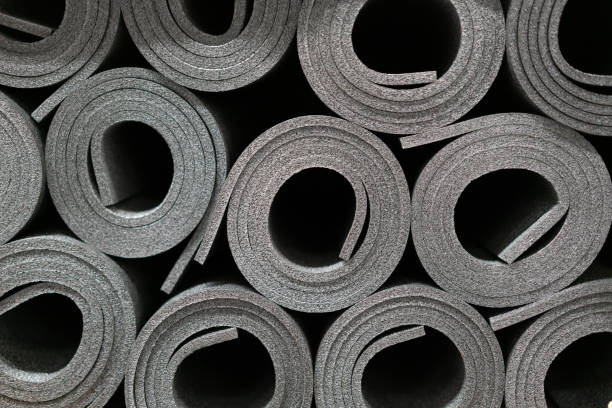
Rubber's unique properties make it a superior insulating material in various industrial and electrical applications.
Superior Protection Against Electrical Shocks
Because of its insulating properties, rubber is ideal for protection from electric shocks. Regardless of the application, in gloves, footwear, as an insulating layer for wires, and cables rubber does not allow electrical current to flow through it to the operator hence enhancing safety where there is high electrical risks. This is especially so in sectors where employees are invariably in direct contact with live electrical systems, including construction, manufacturing and power generation.
Resistance to Weather and Chemicals
Another advantage of rubber is its capacity to offer protection from electric shocks in case the electricity is flowing through the insulated material. Electric current cannot pass through rubber and hence any person handling electrical equipment does not stand a chance of being shocked. This feature is especially important in areas such as power plants, electrical maintenance and construction regions where personnel is working in proximity to live electrical systems.
Cost-Effectiveness and Availability
Rubber is readily accessible and cheaper as compared to other insulating material hence it is cheaper for manufacturers and industries. Due to its availability in large quantities and its ability to be processed easily, it is relatively cheap; also, due to its usability in diverse applications, it is an efficient material to be used for insulation.
Conclusion
In conclusion, one can state that due to its flexibility, durability, and non-conduction of electricity, rubber is an ideal material for electrical insulation. From the cables to equipment and even the workers, rubber makes sure that electrical systems are secure and productive.
Future Trends and Innovations in Rubber Insulation
New development in rubber insulation materials is therefore experienced as technology develops. New formulations and improved rubber blends are expected to deliver better performance, providing still better protection against electrical risks and environmental conditions.
It has been established that firms in search of sound and quality rubber insulations should source their materials from top foam rubber manufacturers FUNAS who provide original rubber products developed by skilled professionals. Select FUNAS to avail our wholesale rubber and let us provide you with the best insulating materials that are tailored to your needs.

Does Heat Insulation Work? The Ultimate Guide to FUNAS Insulation Solutions
What is the cheapest way to insulate internal walls? | FUNAS Guide
How thick is acousticlining? | FUNAS Guide
What are the disadvantages of thermal insulation? | FUNAS Guide
How much does acousticfoam reduce sound? | FUNAS Guide
service
What types of rubber foam insulation products do you offer?
We offer a wide range of rubber foam insulation products, including custom shapes and sizes, thermal and acoustic insulation solutions, and options with specialized coatings such as flame retardancy and water resistance. Our products are suitable for applications in HVAC, automotive, construction, and more.
Can I request custom dimensions or properties for my insulation needs?
Yes, we specialize in custom solutions. Whether you need specific dimensions, thicknesses, densities, or additional coatings, we can work with you to manufacture insulation products tailored to your exact requirements of good materials for heat insulation.
FAQ
What types of rubber foam insulation do you offer?
We offer a wide range of rubber foam insulation with different thicknesses and specifications. Thermal insulation material manufacturer FUNAS sleeves and sheets are suitable for different application scenarios.
What is the typical delivery time for custom orders?
Our daily production capacity is 800 cubic meters. Delivery time varies depending on the complexity of the insulation material wholesale order, but we can deliver large quantities of customized products within 4-6 weeks after the approval date, and small quantities can be delivered within 15 days.
Can your insulation products be customized?
Yes, we offer customized solutions for insulation material wholesale to meet the specifications of your project, including custom specifications, sizes, foils and adhesives, colors, etc.
You might also like



This product has passed the national GB33372-2020 standard and GB18583-2008 standard. (The product is a yellow liquid.)
Anggu foam phenolic glue is a kind of glue with corrosion resistance, low odor, high strength and excellent brushing property. Can be sprayed for construction with fast surface drying speed, long bonding time, no chalking and convenient operation.

This product has passed the EU REACH non-toxic standard, ROHS non-toxic standard. (The product is black glue.)
Anggu 820glue is a low-odor, high-strength quick-drying glue; Fast drying speed, long bonding time, no powder, non-toxic.
Discover the future of energy efficiency with FUNAS's "Top Thermal Insulation Materials List for 2025." Our expertly curated list highlights innovative solutions perfect for your construction and renovation needs. Stay ahead of the curve with cutting-edge insulation technology designed for optimal thermal performance and sustainability. Trust FUNAS for advancements that redefine comfort and efficiency in every project.
Leave a message
Have any questions or concerns about our products? Please leave us a message here and our team will get back to you promptly.
Your queries, ideas, and collaboration opportunities are just a click away. Let’s start a conversation.


















































